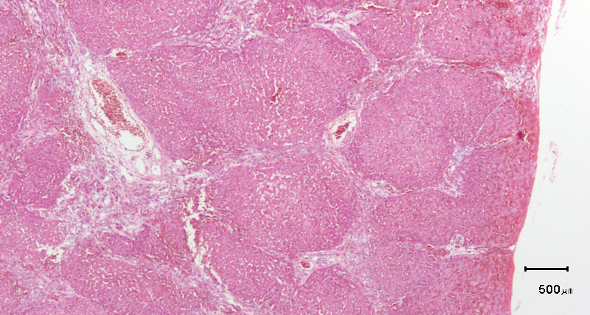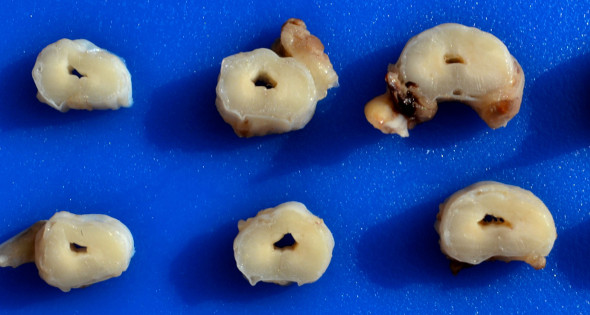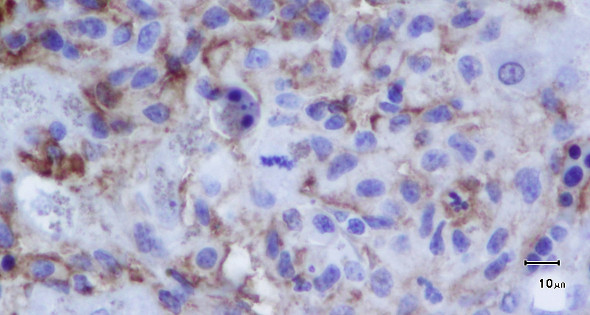Veterinary Comparative Pathology
We have been investigating the clinical, pathological, and molecular mechanisms of tumours in dogs, cats, and laboratory models. The methodologies include histochemistry, immunohistochemistry, miRNA, protein biomarkers, and genetic screening. Research areas include tumour hypoxia (Glut-1, Ca-IX), COX-2 enzyme expression, intratumoral microvessel density, FOXP3 positive regulatory T cells, and rodent models using a piggyBac transposition system. We have been looking at soft tissue sarcomas, mast cell tumours, histiocytic sarcomas, oral squamous cell carcinomas, nasal carcinomas, and gastrointestinal tumours.
We have been investigating syringomyelia (SM) in the cavalier King Charles spaniel (CKCS) from a clinical, immunological and pathological perspective. Affected dogs can present with distressingly painful clinical signs and cervical hyperaesthesia. The complete pathogenesis of the syrinx and the clinical signs are incompletely understood. We have been investigating the morphological basis of symptomatic and asymptomatic CKCS dogs with SM, assessment of pain-related neuropeptides (substance P and calcitonin gene related peptide), endoneurial inflammatory cells and the pathogenesis of syrinx formation in the spinal cord of affected CKCS dogs.
A further area of investigation has been the clinical, immunological, and pathological mechanisms of hepatitis and pancreatitis in dog breeds including the cavalier King Charles spaniel, English springer spaniel, and Skye terrier. The results of these studies will aid understanding of the pathogenesis of the disease and the variation among breeds, age, and gender; to help to prevent the disease and improve treatment to ensure a better quality of life of affected dogs.




